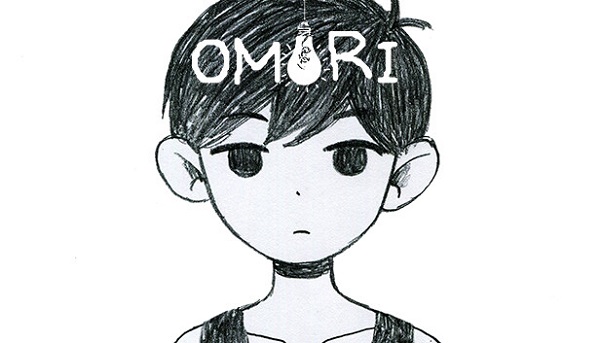Fortnite, developed by Epic Games, has become one of the most popular and culturally significant games of the decade. With its free-to-play model, the game has attracted millions of players worldwide. However, the financial backbone of Fortnite lies in its microtransactions, which include the purchase of V-Bucks, skins, emotes, and other in-game items. While these microtransactions have enabled Epic Games to generate significant revenue, they have also sparked debate over their impact on gameplay and the overall player experience. This article delves deeply into the issue of microtransactions in Fortnite, exploring how they affect player behavior, the game's design, and the broader gaming community.

The Evolution of Microtransactions in Fortnite
Microtransactions were introduced to Fortnite as a way to monetize the game while keeping it free-to-play. Over time, the nature and scope of these transactions have evolved, significantly influencing the game's ecosystem.
The Introduction of V-Bucks
V-Bucks, Fortnite's in-game currency, was introduced as the primary means for players to purchase cosmetics, battle passes, and other items. This virtual currency became central to the microtransaction model, allowing players to acquire desired items without directly spending real money on each purchase.
The Appeal of Cosmetic Items
One of the key selling points of Fortnite's microtransactions is that they primarily offer cosmetic items that do not affect gameplay. Skins, emotes, and other visual enhancements became highly sought after, driving players to spend V-Bucks to personalize their in-game experience.
The Battle Pass System
The Battle Pass, introduced in Fortnite's second season, revolutionized how players engage with the game. By purchasing a Battle Pass, players gained access to a tiered reward system that offered exclusive skins, emotes, and other items as they progressed through the season.
The Impact on Player Engagement
The Battle Pass encouraged regular play by offering rewards for completing challenges and leveling up. This system increased player engagement, as players were incentivized to return to the game frequently to maximize their rewards.
The Psychological Impact of Microtransactions
Microtransactions in Fortnite are designed to be enticing, leveraging psychological principles to encourage players to spend money. This has raised concerns about the potential for addictive behavior and the ethical implications of such practices.
The Psychology of FOMO (Fear of Missing Out)
One of the most powerful psychological tools used in Fortnite's microtransactions is FOMO, or the fear of missing out. Limited-time offers, exclusive skins, and seasonal items create a sense of urgency, compelling players to make purchases quickly to avoid missing out.
The Role of Time-Limited Items
Time-limited items, which are only available for a short period, exacerbate FOMO. Players are often pressured into buying these items immediately, fearing that they will never have another chance to acquire them.
The Impact on Younger Players
Fortnite's player base includes a significant number of younger players, who may be more susceptible to the psychological tactics used in microtransactions. This has led to concerns about the ethical implications of marketing these items to children and adolescents.
Parental Concerns and Regulation
Many parents have expressed concerns about the ease with which their children can spend money on Fortnite. The lack of stringent regulations around in-game purchases has led to calls for greater oversight and protections for younger players.
The Economic Impact of Microtransactions
Microtransactions have had a profound economic impact on both Epic Games and the broader gaming industry. However, this success has also led to criticisms regarding the fairness and accessibility of in-game purchases.
Revenue Generation for Epic Games
Fortnite's microtransactions have generated billions of dollars in revenue for Epic Games. This financial success has allowed the company to continue developing and updating the game, as well as to invest in other projects.
The Role of Whales in Revenue
A small percentage of players, often referred to as "whales," contribute a disproportionately large amount of revenue through microtransactions. These players are willing to spend significant sums on in-game items, driving the overall profitability of the game.
The Impact on Game Design
The success of microtransactions has influenced Fortnite's game design, with some players arguing that the game has become more focused on monetization than on providing a balanced and fair gameplay experience.
The Shift Towards Pay-to-Win Mechanics
While Fortnite's microtransactions are primarily cosmetic, some players have expressed concerns that certain items, such as exclusive skins or emotes, can give players a competitive advantage, creating a perceived pay-to-win environment.

The Influence of Microtransactions on Player Behavior
Microtransactions have significantly influenced how players interact with Fortnite, shaping everything from in-game behavior to social interactions.
The Social Status of Skins
In Fortnite, skins have become a symbol of status and prestige. Players who have rare or expensive skins are often seen as more skilled or dedicated, leading to a social hierarchy based on cosmetic items.
The Pressure to Conform
The desire to fit in and be seen as part of the in-crowd can pressure players into making purchases they might not otherwise consider. This social pressure can be particularly strong among younger players, who may feel the need to keep up with their peers.
The Emergence of Skin Trading and Scams
The value placed on skins has also led to the emergence of skin trading and scams within the Fortnite community. Some players engage in trading skins with others, while others fall victim to scams that promise rare items in exchange for real money or V-Bucks.
The Risk of Fraud
The rise of skin trading and scams has introduced new risks to the Fortnite community. Players, particularly younger ones, may be at risk of fraud or losing their accounts due to illicit trading practices.
The Broader Impact on the Gaming Community
Fortnite's microtransaction model has had a ripple effect throughout the gaming industry, influencing how other developers approach monetization and game design.
The Normalization of Microtransactions
Fortnite has played a significant role in normalizing microtransactions in video games. What was once seen as an optional feature has become a standard part of the gaming experience, with many other games adopting similar monetization strategies.
The Shift in Player Expectations
As microtransactions have become more prevalent, player expectations have shifted. Many players now expect games to include microtransactions, and some even consider them a necessary part of supporting ongoing game development.
The Debate Over Ethical Monetization
The widespread adoption of microtransactions has sparked a debate over what constitutes ethical monetization in video games. Critics argue that some practices, particularly those targeting younger players, are exploitative and should be regulated.
Calls for Greater Transparency
In response to these concerns, there have been calls for greater transparency in how microtransactions are implemented. Players and advocacy groups are pushing for clearer disclosure of the odds of obtaining certain items, as well as for stricter regulations on in-game purchases.

The Future of Microtransactions in Fortnite
As Fortnite continues to evolve, so too will its approach to microtransactions. The future of the game will likely see new developments in how in-game purchases are implemented and regulated.
The Potential for Regulation
The growing concerns around microtransactions, particularly in relation to younger players, may lead to increased regulation. Governments and regulatory bodies may introduce new rules to protect consumers and ensure that in-game purchases are fair and transparent.
The Impact on Game Development
Increased regulation could impact how Epic Games and other developers design their games. Developers may need to rethink their monetization strategies to comply with new regulations while still generating revenue.
The Role of Player Feedback
Player feedback will continue to play a crucial role in shaping the future of microtransactions in Fortnite. As the gaming community becomes more vocal about their concerns, developers may be forced to adapt their practices to maintain player trust and satisfaction.
The Importance of Community Engagement
To ensure the long-term success of Fortnite, Epic Games will need to engage with the community and address their concerns about microtransactions. By listening to player feedback and making meaningful changes, the company can build a more sustainable and player-friendly ecosystem.
Conclusion
The issue of microtransactions in Fortnite is complex, with significant implications for player experience, game design, and the broader gaming industry. While microtransactions have enabled Epic Games to keep Fortnite free-to-play and continuously updated, they have also introduced challenges and controversies that cannot be ignored. As the gaming community continues to grapple with the impact of these in-game purchases, it is crucial for developers, players, and regulators to work together to find a balance that supports both the financial sustainability of games and the well-being of players.





















